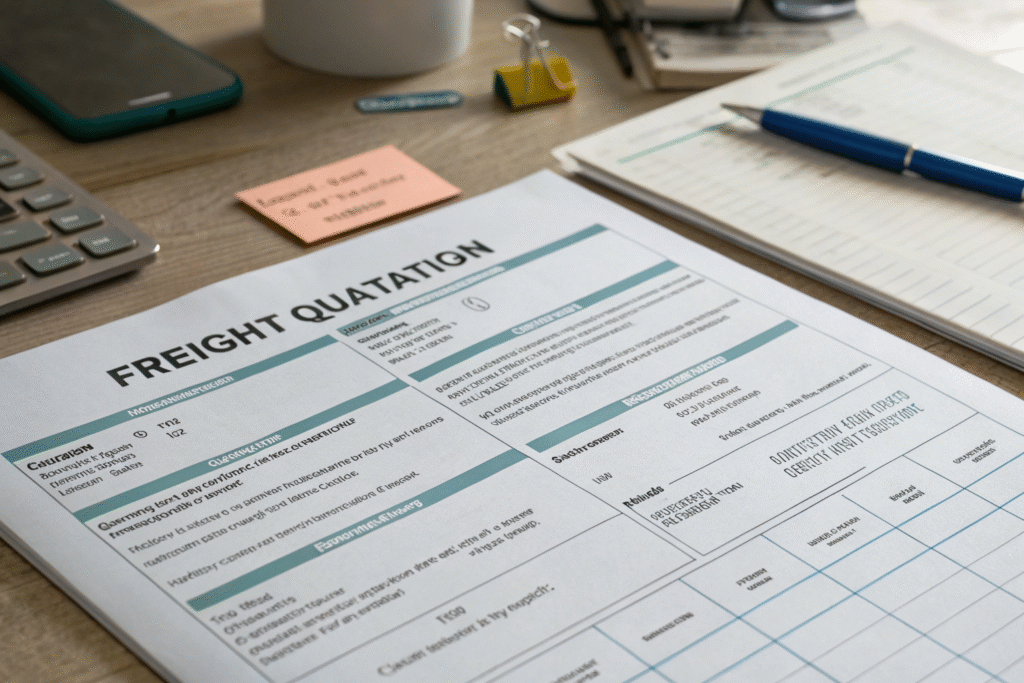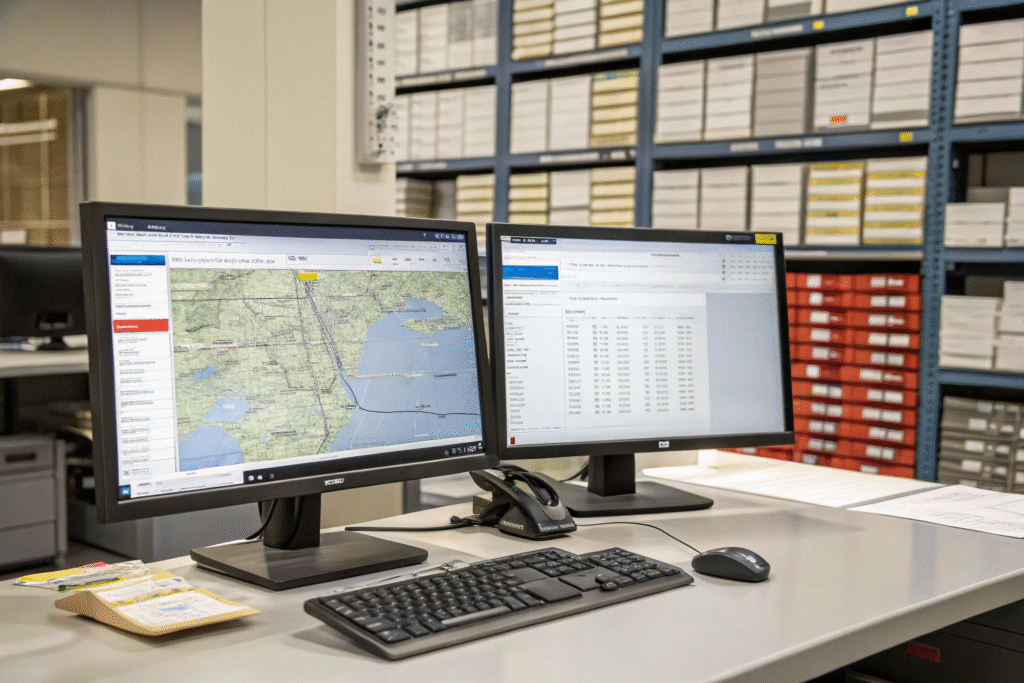Freight costs are one of the most unpredictable parts of global sourcing. Many U.S. buyers like Ron have told me stories of budget overruns, hidden surcharges, and payment conflicts—all caused by vague or inaccurate shipping quotes. As a freight forwarder at GeeseCargo, we treat quoting as a precision tool, not just a sales tactic.
Accurate freight quotations give importers a clear, reliable cost structure, reduce the risk of surprise fees, support better budgeting, and strengthen trust between buyers and forwarders.
If you’re planning to import apparel, gifts, or bulk goods from China to the U.S., knowing the exact shipping cost isn't just helpful—it’s critical for your profit margin. Let's dive into why quoting accuracy is the foundation of great freight service.
What Is Included in an Accurate Freight Quotation?
A good freight quote isn’t just a price—it's a cost map. Understanding what’s included helps you plan and negotiate confidently.
A professional freight quotation includes all relevant charges, from pickup to final delivery, clearly categorized and time-stamped.

What Are the Core Components of a Freight Quote?
At GeeseCargo, every quote we issue includes five key elements:
- Origin charges: pickup, export customs, documentation
- Main carriage: sea, air, or rail cost with carrier name
- Destination charges: import duties, customs brokerage, local delivery
- Surcharges: fuel, GRI, congestion, war risk (if any)
- Validity: how long the rate is guaranteed
Platforms like Freightos or iContainers now let you compare full quotes side by side. This clarity reduces price disputes and makes budgeting more predictable.
Why Is Quotation Validity So Important?
Rates in freight change quickly. A quote valid for only 7 days might expire before you finalize your order. We always highlight expiration dates and notify clients of upcoming carrier adjustments.
Sites like Xeneta track spot rate movements and help us keep quotations aligned with current market pricing. Accurate quotes are updated regularly to avoid last-minute surprises.
How Do Inaccurate Quotes Hurt Your Business?
Nothing damages trust like an invoice that doesn’t match the original quote. I’ve seen small importers lose thousands just because of unclear terms or last-minute add-ons from unreliable providers.
Inaccurate freight quotes lead to hidden costs, project delays, and damaged trust between buyers and forwarders.

What Types of Hidden Fees Can Appear?
Hidden charges usually come from vague quotes or poorly explained exclusions. Common issues include:
- Port congestion surcharges
- Demurrage or detention penalties
- Document handling fees
- Incorrect cargo classification costs
Sites like JOC report on seasonal surcharges that many forwarders omit unless asked. We prevent this by listing every possible add-on upfront—even if it makes the quote look longer.
Transparency builds long-term relationships.
How Can Inaccurate Quotes Cause Delays?
If your quote misses key documentation or customs requirements, clearance can be held at the port. That leads to storage fees or even container return.
We use quoting systems that double-check HS Codes, compliance documents, and tariff applicability. Services like Descartes help us verify country-specific rules that influence total cost.
How Does Accurate Quoting Support Better Decision-Making?
Business decisions rely on accurate numbers. The better your freight data, the better your profit planning, timeline tracking, and inventory control.
Accurate freight quotes enable smarter sourcing decisions, inventory scheduling, and product pricing.

How Does It Improve Sourcing Strategy?
When quotes are accurate, buyers can make informed choices between carriers, modes, and schedules. For example, switching from ocean to air for a 10-day launch gap may cost 30% more, but deliver ROI faster.
Comparing rates on Flexport or ShipHub gives you a tactical edge. We help clients simulate scenarios and pick the optimal cost-time balance.
Clients who understand freight costs upfront negotiate better factory terms and avoid reactive decisions.
What’s the Impact on Product Pricing?
Retail pricing includes landed cost. If shipping cost fluctuates after purchase orders are confirmed, margins shrink fast.
By locking in accurate quotes, you protect your pricing strategy. Using platforms like Shipamax or custom TMS tools, we sync freight quotes into your ERP for end-to-end costing clarity.
What Makes a Freight Forwarder’s Quoting Reliable?
Not all freight quotes are created equal. What separates reliable forwarders from risky ones is their quoting methodology and tools.
Reliable forwarders use real-time market data, clear templates, and experienced staff to generate accurate, personalized quotations.

What Tools Ensure Accuracy?
We use rate management systems connected to shipping lines, trucking firms, and customs databases. This ensures every number is grounded in real data, not guesswork.
Examples include Magaya, CargoSphere, and integrations with WiseTech Global.
These tools allow us to factor in:
- Real-time fuel surcharges
- Port-specific handling fees
- Carrier-specific rate agreements
How Do Experienced Forwarders Add Value?
Beyond tools, it’s human know-how. At GeeseCargo, we analyze each quote based on cargo size, urgency, port status, and seasonal surcharges.
We ask the right questions upfront: Is the cargo stackable? Will it be mixed with hazardous items? Does the client need DDP service?
This detail-focused mindset prevents cost creep and keeps your logistics predictable and professional.
Conclusion
Freight quoting isn't just math—it’s strategy. When you work with a forwarder who gives clear, accurate, and timely quotes, you're not just avoiding hidden costs—you’re building a better business.
At GeeseCargo, we’ve helped clients like Ron secure confident profit margins, meet delivery deadlines, and grow their operations with our precise and honest quotations. If you want shipping costs that support your sourcing strategy—not sabotage it—then start with a quote that gets everything right the first time.








